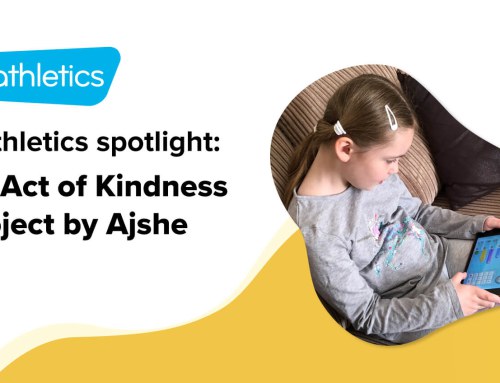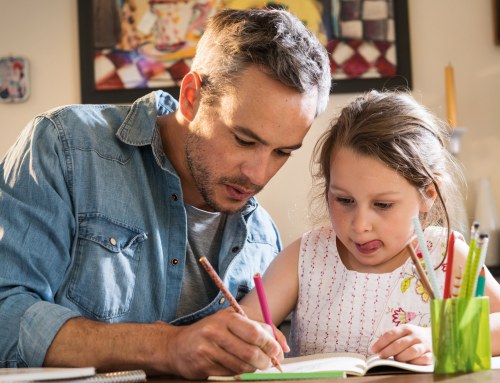The question of how much screen time should children be getting is one of the fastest-rising modern parental issues. It’s not surprising given anxieties over minds rotting, cyber-bullying, morality and mental health all snowballing into one giant knot of stress for parents all over the world.
Parenting now means potentially feeling guilty about your own screen time habits, running a long and bitter war against your own kids over taking away their screens (one that, let’s be honest, you lose most of the time), and even conflict with your partner or other parents’ screen time policies.
We’ve all experienced how frustrating it is to try and get your child’s attention, but they’re so engrossed in the screen that you may as well be trying to talk to them from Mars. It’s also easy to feel judged for how much time your child is spending on the screen. You can get defensive over how your level of exhaustion isn’t being factored in, nor your efforts to police screen time.
However, this is an issue that is impossible to ignore given the inevitability of our children spending hours on screens. We even have endless sources out there telling us the recommended screen time, ranging from none at all for children aged 0-2 and 3 hours per day(!) for children 5 to 17 years old.
So, the question to ask is not “how can I reduce my child’s screen time?” but “how can I make sure my child isn’t harmed by their screen time” and “how can I ensure that my child’s screen time is productive for them?”
For a catchier version, think ‘healthy not harmful’. We’ve put together three ways you can accomplish this lofty target.
Select examples that encourage positive behaviour
Wait! There’s an important thing to pay attention to here. Positivity doesn’t mean ‘fun’ or ‘entertaining’ or ‘happy’. What distinguishes all these things is whether they encourage positive behaviours or not. Positive screen time will promote, reflect and model positive behaviours for your children.
This is particularly crucial for young children as they’re looking for guidance and examples to show them how they should interact with their family, friends and the wider society. According to a study published in Pediatrics, modifying what your children watch by increasing exposure to programs that show pro-social behaviours on screen will positively change their behaviour. As the author of the study, Christakis, says, “We’ve known for decades that kids imitate what they see on TV. They imitate good behaviours and they imitate bad behaviours”.
This isn’t the only study to point out that showing programs that model positive behaviour can improve our children’s social skills. A 2005 study found that television shows that depict sharing, getting along with others, and rejecting stereotypes can all improve those skills in children. A 2013 study presented at the Midwest Psychological Association Conference suggests that promoting altruistic behaviours like cooperation, sharing and helping others, have the strongest effect on changing behaviours.
Here are some more tips on using screen time to encourage positivity:
- Try to pick television shows that predominantly focus on developing positive behaviour rather than ones that mix positive behaviour with negative. (We know, easier said than done!) Try to avoid shows that depict a lot of negative behaviour in order to achieve positive ends. For example, often characters may exhibit unethical behaviour or violence to save a friend or defeat a villain. These kinds of shows are far less likely to influence behaviour for the better.
- Get involved and discuss a character’s positive behaviours. Often characters may display pro-social skills, but rarely do they explain why they took a particular action. You can reinforce these skills by talking to your children about them. For example,
“Did you see how Dora (the Explorer) was kind to Swiper? Why did she do that? How do you think it made him feel?” - Go one step further and encourage your child to use these skills and point out opportunities for them to do so. For example, “You seem frustrated. Do you want to try taking a walk like Daniel Tiger did?”
Make it educational (and active!)
Bethany Koby, CEO and founder of Technology Will Save Us, points out: “There’s a lot of really wonderful educational content online that encourages children to participate rather than just being a passive observer … many games and apps have been designed specifically to encourage thinking and questioning”. It’s easier than ever nowadays to find education content. Here are some examples of how you can use different types of educational content for healthy screen time:
- TV and streaming documentaries and quiz shows — your kids will expand their general knowledge, learn about the world and become trivia whizzes in no time. Try the Planet Earth series. Turn those inquisitive brains against themselves by asking them questions. “Why is the sky blue?” “Why do giraffes have such long necks?”
- Learn a language through an app. There are several different apps so you can find one that’s age appropriate. For younger kids, Gus on the Go is a great app for learning languages, while older children may even like Duolingo.
- Learn how to play a musical instrument — does your child have a pop song they love? We practically guarantee there’s a YouTube tutorial on how to play it on the piano or guitar. We particularly like the ones that show you where your fingers should be on the piano or keyboard keys as you play. Here’s an example of how to play Happy by Pharrell Williams on the piano. There are also heaps of apps that gamify the experience of learning an instrument.
- Edutainment! Remember the games and apps designed to encourage learning and critical thinking we mentioned earlier? Many programs and apps use best-practice gamification to turn ordinary (read: boring) lessons into activities that make children think they are playing a game when really, they are learning! We might be biased (guilty) but we think Mathletics is one of the best out there for teaching children and getting them to exercise their numeracy skills in a fun and engaging way.
Need help making screen time healthier?
We’ve got you covered. Get unlimited access to Mathletics for 14 days below, to make screen time more meaningful for your child!








